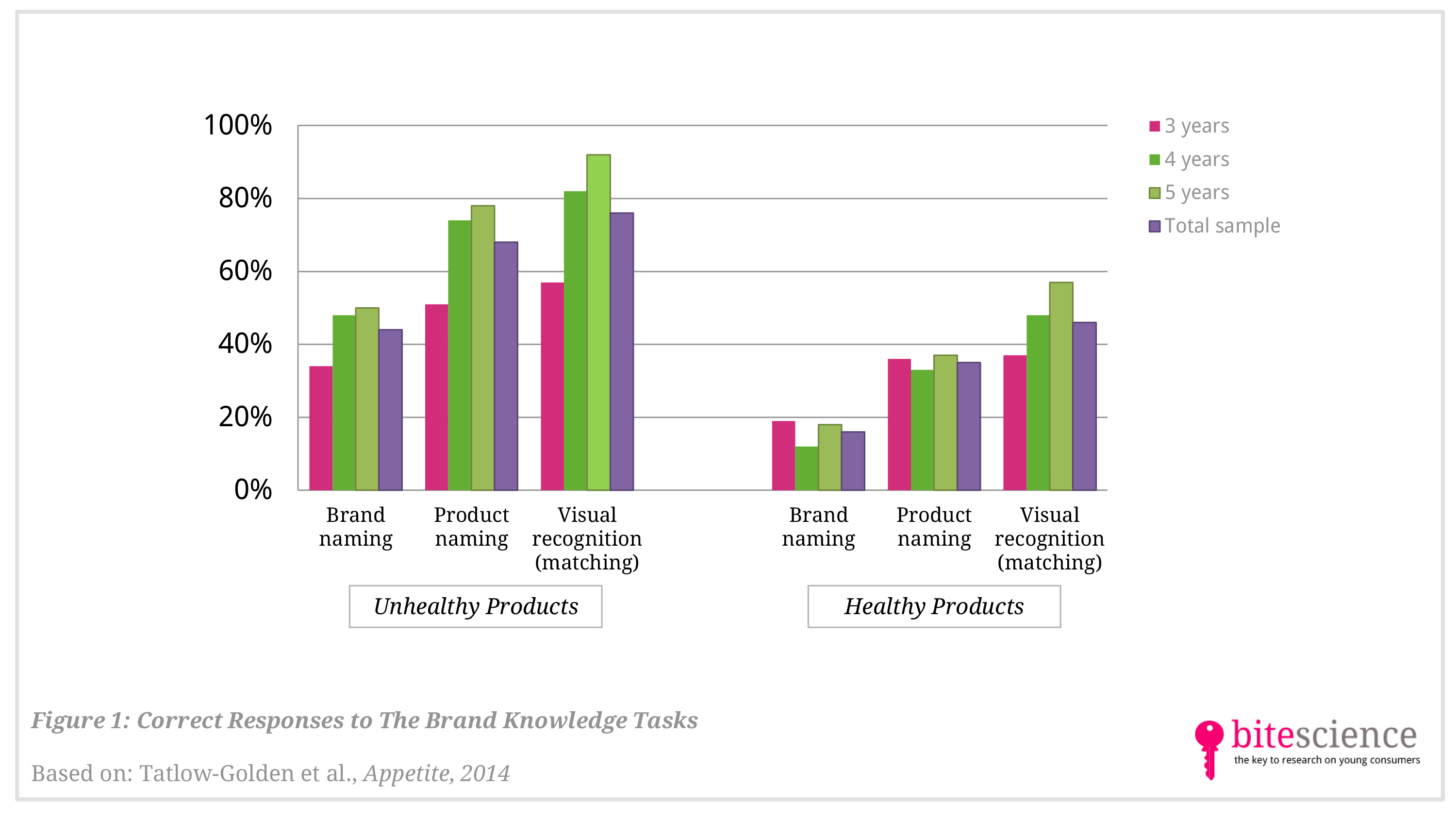
Young Children Already Highly Familiar With Unhealthy Food Brands
A study in Appetite reveals the level of young children's knowledge of brand logos for healthy and unhealthy foods and drinks. About two-thirds of the 3- to 5-year-olds can make a correct match between logo and product and one-third can spontaneously name the correct brand name when seeing a brand logo. Remarkably, children’s knowledge of unhealthy brands is much better than their knowledge of healthy brands. Parents' poor eating habits are highly related to children’s knowledge of unhealthy brands.
Take aways
- Three quarters of 3- to 5-year-old children have rudimentary knowledge about unhealthy food brands, in a way that they are able to match brand logos with the correct product.
- This brand familiarity increases dramatically between 3 and 4 years of age.
- Children’s brand familiarity is higher for unhealthy brands than for healthy brands.
- Parents' poor eating habits seem to increase children's knowledge of unhealthy advertised brands.
- For health practitioners, social marketers, and developers of health programs it is important to note that the eating habits of parents greatly affect children’s knowledge of unhealthy brands. Interventions aimed at improving young children's diet should include the family.
Study information
The question?
What’s the level of young children’s knowledge of widely advertised food and drink brand logos (both healthy and unhealthy), and to what extent is this affected by social and environmental factors, such as their own eating habits or the eating practices of their parents?
Who?
172 children aged 3-5 years (48% were boys)
Where?
Ireland, United Kingdom
How?
The researchers showed children images of heavily advertised brand logos and products of four healthy items (Innocent smoothie, Actimel yoghurt drink, Frube flavored yoghurt, and Cheestring string cheese), and of five less healthy items (Pringles chips, Coco Pops cereal, Cadbury’s chocolate, McDonald’s fast food, and Coca-Cola soft drink). The products were chosen out of the top-20 food, soft drink, and fast food restaurant brands seen on TV by 4-to 6-year olds.
For each image, the researcher asked the child to name the brand (for example "Coca Cola", to assess the child's brand knowledge) and the product (for example, "drink", to assess product knowledge). In addition, the researchers asked children to match the images of the brand logos with those of the products, to assess children's visual logo recognition. Parents also gave information via questionnaires about their own and their children's eating habits, and their children’s television viewing.
Facts and findings
- Overall, nearly a third (31%) of the brand names - of both healthy and unhealthy products - were given by the children after exposure to a brand logo, over half (53%) also named the right product type, and nearly two-thirds (63%) matched the right product images to the brands.
- Children’s brand knowledge increased with age. Especially between 3 and 4 years of age children were more able to give the right brand name and product type, and match the brand logo with the correct product type.
- Children’s brand knowledge of advertised unhealthy foods and drinks was much greater than their knowledge of healthy foods. For example, 68% of the children named the correct product name after being exposed to a brand logo of an unhealthy product, whereas 35% of the children named the correct product name after exposure to a brand logo of a healthy product (see Figure 1).
- A possible explanation for this finding is that advertising for unhealthy products is more engaging (e.g., animations, promotional characters) than it is for healthy products, and therefore children are more likely to recall those unhealthy brands.
- When comparing the role of the various factors (age, TV viewing, education of the mother, child and parents' eating habits), only age and parental eating habits related to children's unhealthy brand knowledge.
- Critical note: This study does not allow for any conclusions about cause (e.g., age, parental eating habits) and effect (unhealthy brand knowledge). The results only show that children's age, and the eating habits of parents is associated with higher brand knowledge of unhealthy foods and drinks, and does not allow conclusions about what causes what.
